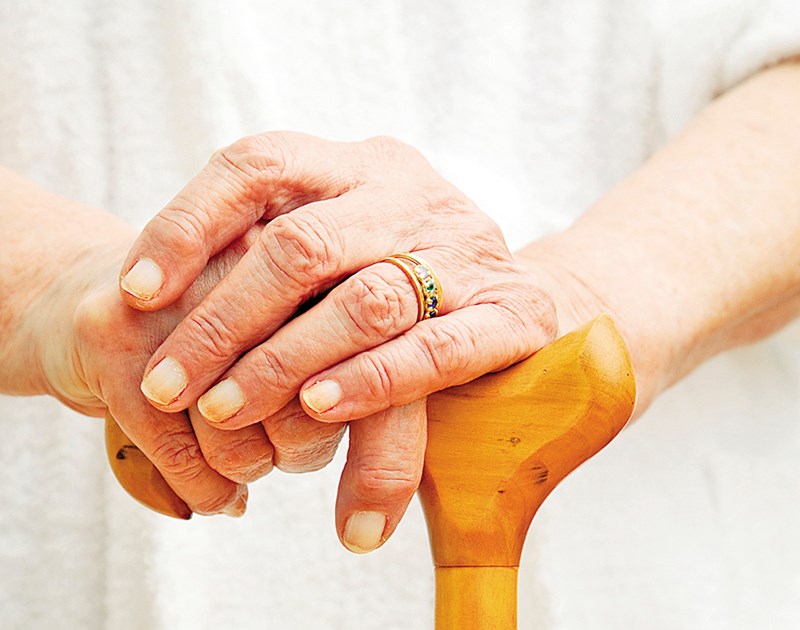Cathy Dobson
Matthew Cousins Sr. isn’t convinced by new promises this week that his partner will get more homecare.
“I’ll believe it when I see it,” says the 49-year-old Sarnia man. “It might happen but it might not.”
Like many local residents who rely on government funded homecare, he’s anxiously waiting to see if the care that was withdrawn Nov.4 will be reinstated.
The Erie St. Clair Community Care Access Centre (CCAC), which provides in-home personal support workers, nurses and physio so that more people can leave hospital faster and stay out of long-term care facilities, is facing a financial crises.
A projected $5.9-million deficit was looming until last week and homecare hours were being severely cut back. That is, until an unexpected government announcement gave the CCAC a 12-month reprieve.
Rather than being forced to balance its budget as is the usual practice, the CCAC was told Nov. 27 that it could carry a deficit until March 2016. Additionally, its $132 million budget received a $4.1 million permanent annual infusion.
“That will reduce the deficit to 1.8 million,” said CCAC CEO Lori Marshall. “Our intention now is to work with the community to figure out how to fill the gaps.
“I generally think it’s a good news story.”
But Cousins Sr. isn’t so sure.
He does his best to care for his partner Todd Whitman, 47, who suffers terrible pain from generalized dystonia, a neurological movement disorder that causes his muscles to contract and twist.
For eight years, the Erie St. Clair CCAC – which serves Sarnia-Lambton, Windsor-Essex and Chatham-Kent – has provided Whitman with a personal support worker two hours daily, in large part so he can get in and out of a tub twice a day.
Soaking in warm water provides a great deal of relief from the chronic pain, says Cousins Sr.
The support worker is necessary because Cousins Sr. suffers himself from chronic pain, has had two heart attacks and is unable to lift Whitman, he said.
A few weeks ago, Whitman’s CCAC care was abruptly cut to 15 minutes a day.
Rising demand for homecare is forcing the CCAC to take a closer look at mild need patients and apply more dollars to high need, complex care patients, said Marshall.
“There’s been a dramatic change in the number of people being discharged from hospital and being sent home rather than to long-term care, she said.
Todd Whitman was “red-flagged” as someone with mild needs, according to Cousins Sr.
The same goes for a 91-year-old Sarnian widow who has had her care reduced from 11.5 hours a week to five hours a week.
The woman, who asked not to be named, describes herself as “a physical mess” and said she needs help showering and dressing to continue living independently.
“I’m not ill but I fell in 2007 and have had five major surgeries in six years,” she said.
She relies on a walker and has no family nearby to help.
The 91-year-old, Whitman and Cousins Sr. were among a group who took their cases to Sarnia-Lambton MPP Bob Bailey and found themselves face-to-face with Lori Marshall and Gary Switzer, the CEO of the Erie St. Clair LHIN, which co-ordinates healthcare in this region.
Bailey organized the meeting in his office after numerous complaints came in about CCAC cuts to service.
“I’m upset that it’s come to this,” said Bailey. “If Toronto has money issues, that’s no one’s fault but the government.”
Thirty per cent of Erie St. Clair patients have mild needs, compared to 15% across Ontario, said Switzer. “Lori Marshall has admitted they haven’t been as diligent as they could have in tapering people off.
“The issue is that they provide service to too many low-needs patients, so reassessments must be done.”
Cousins Sr., Whitman and the elderly widow were thankful for the MPP’s advocacy.
“I think Bob Bailey has done a terrific job,” said the 91-year-old. “He got all these people together and made them realize this is serious. There are too many horror stories out there.”
“I think Bob did everything he could but I’m afraid it’s not going to work,” said Cousins Sr. “They say the deficit can be cleared up asking other agencies to fill in, but where are they doing to get the money for that?”
Bailey viewed the new funding announcement as good news.
“I feel very positive about what happened this week and I hope the resources can be found for the people who need them,” he said.
KNOW YOUR RIGHTS
Every patient has the right to ask the Community Care Access Centre to review a decision to cut back or deny services, Ontario’s Advocacy Centre for the Elderly says.
The law says the CCAC must tell you, in writing, how to make a complaint or ask for a review of a decision it made.
Community Legal Assistance Sarnia is hosting workshops on Dec. 16 to let people know their rights and how to appeal a CCAC decision.
For more about the information sessions call CLAS at 519-332-8055
